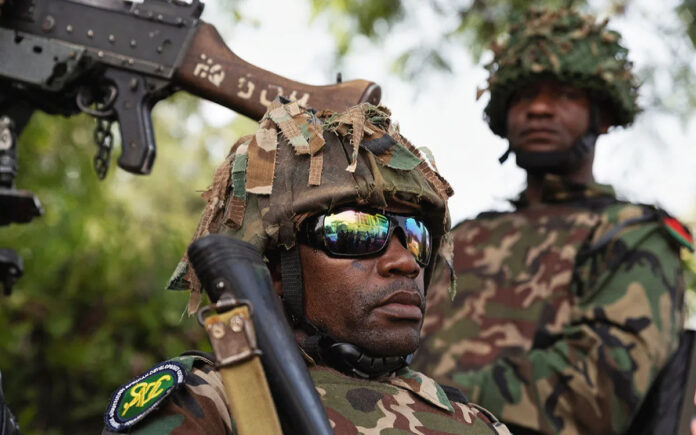Doha: The government of the Democratic Republic of Congo and the M23 rebel group have held their first private talks in months, marking a significant step toward potential peace in the country’s conflict-ridden eastern region. The confidential discussions took place last week in Doha, Qatar, according to a source familiar with the negotiations who spoke to the international news agency Reuters.
The source, who requested anonymity due to the sensitivity of the matter, described the talks as “positive” and said they had led to a goodwill gesture by the rebels—M23’s withdrawal from the mineral-rich town of Walikale. The talks are set to resume on April 9, also in Doha.
The ongoing conflict has wreaked havoc in eastern Congo since the beginning of the year, with M23 forces staging a rapid and forceful advance that captured key cities and displaced hundreds of thousands. Thousands of civilians have reportedly been killed in the fighting, further compounding one of Africa’s worst humanitarian crises.
The conflict has also stirred fears of regional escalation, with Uganda and Burundi maintaining troop deployments in eastern Congo. Both countries claim to be there under bilateral security arrangements, though their presence has heightened tensions in the volatile region.
Also Read | Ukraine Blames Russia for Deadly Kryvyi Rih Attack, Moscow Claims Military Target
The United Nations and several Western nations have accused Rwanda of backing the M23 movement—allegations that Kigali has repeatedly denied. Rwanda insists its military interventions have been acts of self-defense in response to perceived threats from Congolese forces and militias linked to the 1994 genocide.
While the Congolese government and M23 have yet to issue formal statements regarding last week’s discussions, confirmation of the rebels’ withdrawal from Walikale has been independently verified by two residents, a local official, and the Congolese army.
Also Read | iPhone Prices Set to Surge Amid Trump’s New Tariff Measures
Last month, M23 had already pledged to leave Walikale, but accused the Congolese army of violating de-escalation agreements by failing to remove attack drones. That initial withdrawal was stalled until the renewed diplomatic engagement in Qatar.
Despite ongoing tensions and mutual distrust, the renewed dialogue in Doha represents the most promising diplomatic breakthrough since the latest escalation began. Whether these talks can pave the way to a broader ceasefire or lasting peace remains uncertain, but the recent progress has ignited cautious optimism in diplomatic and humanitarian circles.



